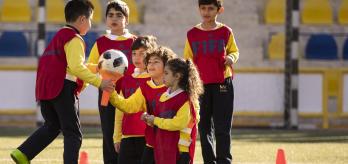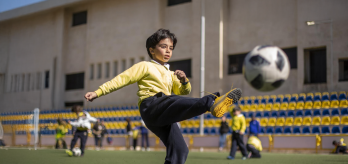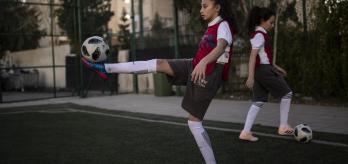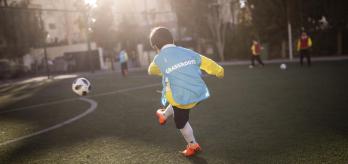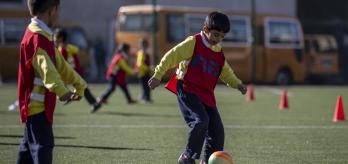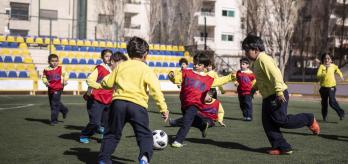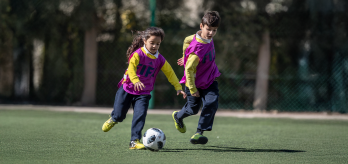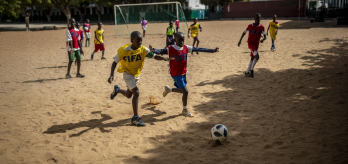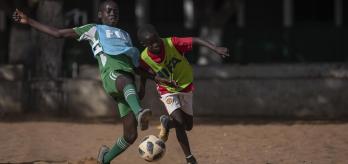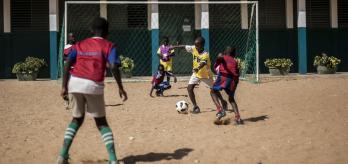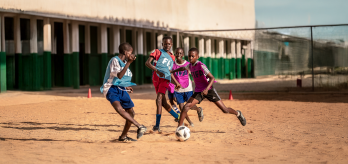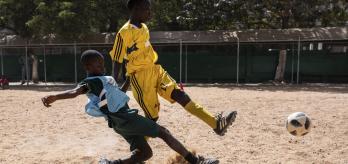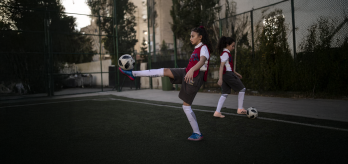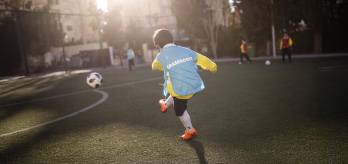In this edition of FIFA’s Grassroots Coaching Essentials series, Dr Vanessa Martínez Lagunas explores how coaches can deliver sessions that follow a clear progression, and dives into the importance of a progressive methodology in supporting players aged 12 to 15 through each stage of their development. Vanessa breaks the presentation down into three crucial phases: technical foundation, tactical introduction, and game application. Each builds on the last, ensuring a purposeful and structured learning experience for the players.
Following the video is a written summary of the presentation, with three practical coaching tips for each phase provided, as well as sample exercises to bring the progressive methodology to life on the training pitch.
Phase 1: Technical foundation
The first phase of the progressive methodology focuses on developing basic, yet fundamental technical skills, which is one of the pillars of grassroots coaching. In this section, Vanessa outlines three key principles that coaches can use to build a strong technical foundation during this phase:
-
Lots of repetition: Frequent practise ensures that players are getting many touches of the ball, sharpening their technical ability for the rest of the session.
-
Practise without opposition: Practising without a direct opposing defender allows young players to build confidence with the ball, refining their skills under little pressure.
-
Incorporate competition: Coaches should always include some form of unopposed competition into the activity to maintain engagement in the learning process and avoid monotony.
Phase 2: Tactical introduction
Once a sound technical base has been established, the next step is for coaches to introduce tactical elements to the activity to foster greater decision-making and a deeper understanding of the game. Here, Vanessa outlines three ways to support players’ tactical development:
-
Improve understanding of the game: Incorporating tactical concepts provides players with a deeper understanding of the game and the impact of their decision-making during a match.
-
Ask leading questions: Coaches can support the learning process further by encouraging critical thinking through asking thought-provoking, game-related questions to the players.
-
Keep it relevant to core skills: These types of activities also offer a valuable opportunity to players to work on fundamental skills alongside developing their tactical mind.
Phase 3: Game application
The final phase of the progressive methodology is applying learnings from the first two phases into match-realistic situations. In this section, coaches should encourage greater freedom to problem-solve and execute technical skills. Vanessa highlights three core principles to help coaches get the most out of this stage:
-
Apply learned skills: After practising in a structured setting, players should be given the chance to put their learnings into action in match-like activities with fewer imposed restrictions.
-
Integrate all relevant skills: These activities should reflect the demands of real matches, requiring technical, tactical, physical and psychosocial skills to be put to the test, while still aligning to the core theme of the session.
-
Minimal coaching intervention: Coaches must take a step back during this activity, allowing players space to think for themselves and problem solve without constant intervention from the sidelines.
Key Take-aways
By using progressively structured sessions, coaches can support deeper learning and more meaningful development. With this approach, Vanessa ensures that every stage of practice contributes to overall growth of the player. Here are the key take-aways from her presentation on implementing the progressive methodology:
-
Player-centred development: This approach allows coaches to tailor each activity to the individual needs and skill levels of each player, encouraging creativity and decision-making.
-
The session becomes gradually more complex: The progressive methodology increasingly challenges players by moving from simple to more difficult activities.
-
Fostering holistic growth: The progressive methodology balances the development of technical, tactical, physical and psychosocial skills, including teamwork, leadership and confidence.


